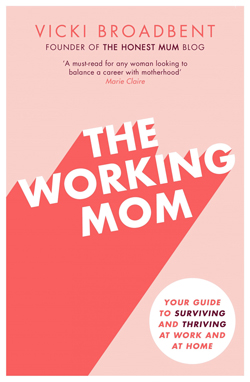What the Best Christmas movies can teach us about Family Law
By Sarah Whitelegge, Senior Associate, Myerson Solicitors

The best Christmas movies, whether streamed on Netflix, Amazon Prime, or caught on Freeview are often filled with festive cheer, love, family bonding and togetherness, but have you ever thought about what your favourite Christmas classic could teach you about Family Law?
Whilst the movies are mostly meant to entertain and lift your Christmas spirit, they often reflect real life issues which are relevant to Family law.
Here are Myerson’s top 3 Christmas movies and the key legal issues that you should take away from them:
The 2006 romantic comedy The Holiday features two women from different countries, Amanda and Iris, who agree to swap homes for the Christmas season, which leads to them ultimately finding love again after their recent divorces. The movie touches on themes of pre-nuptial agreements and marriage in other jurisdictions albeit in a subtle manner.
How do international marriages and divorces work?
With Amanda travelling to the UK, and Iris to California, the movie introduces the concept of international marriage and divorce.
It is important to know that you do not necessarily have to get a divorce in the country you were married. For a divorce to be recognised by the court in England and Wales, certain requirements must be met:
- You must have a valid marriage certificate (and have a certified translation if necessary)
- The marriage must be recognised as valid in the UK, which is satisfied if the marriage is in accordance with the local custom and law of the country where the marriage took place
- You must meet domicile and habitual residence criteria
Importantly, the courts in England and Wales can also still deal with the divorce proceedings even if one party lives in a foreign country.
Should I consider a pre-nuptial agreement?
A pre-nuptial agreement is an agreement which sets out how a person wishes their assets to be divided in the event of a divorce. The Holiday touches on the importance of clear agreements in family matters, whether in relation to family gatherings or even boundaries for new relationships.
Although The Holiday doesn’t delve into the personal precautions taken by Amanda, we quickly learn that she is in fact a successful, money-wise, businesswoman who holds assets of her own, including her home in California. Therefore, given the movie’s positive steer towards the need for agreements, a prenuptial agreement should not be overlooked, and we can infer that one will undoubtedly be of benefit to her, should she decide to marry her new love interest, Graham.
When 8-year-old Kevin McCallister is mistakenly left behind on his family trip, he is forced to live alone in an empty house and fend for himself. Despite Home Alone being a comedy, the movie raises important points around the legal obligations that parents have towards their children.
What is parental responsibility?
The Children Act 1989 defines parental responsibility as, “all the rights, duties, powers, responsibilities and authority which by law a parent of a child has in relation to the child and [their] property”.
A child’s mother automatically has parental responsibility. A father will also have parental responsibility if he is either married to the child’s mother or named on the birth certificate.
The scope of parental responsibility includes determining the child’s education, consenting to their medical treatment, changing the child’s legal name and guiding their religious upbringing.
Clearly, in Home Alone, during the chaos of packing and preparing for their family holiday, Kevin’s parents neglected to ensure that Kevin was accounted for, and ultimately failed to take responsibility to ensure their child’s safety.
Can I be denied access to my children?
It is important to note that having parental responsibility does not automatically give you the right to spend time with your children. However, in most situations, maintaining a relationship with both parents following a divorce or separation is strongly encouraged. The court will presume, unless the contrary is shown, that the involvement of that parent in the life of the child will further the child’s welfare if it does not put the child at risk of suffering harm.
The child’s welfare is the court’s paramount consideration. There are certain situations therefore where it might be necessary to restrict the time a parent spends with a child, such as if there are concerns about the child’s safety, or if a parent is a risk to the welfare of the child.
In this Christmas classic, Karen is heartbroken when she discovers that her husband, Harry, has been cheating on her. Despite the ending of the movie leaving their relationship status ambiguous, we can see that Karen faces inner struggles as she wonders what to do next. The movie therefore raises the following tough questions that arise when infidelity occurs.
What should I do if my partner has cheated on me?
Discovering that your partner has cheated on you can trigger a wave of emotions such as anger, confusion and hurt. It is important that you take time to process these emotions and allow yourself to seek support from trusted friends, family or professionals who can help you regain perspective.
How does adultery affect divorce and any financial settlements in divorce?
Prior to April 2022, there was one ground for divorce, which is that the marriage has irretrievably broken down. In establishing this you had to rely on one of five facts including adultery, unreasonable behaviour, desertion for two years, two years separation with consent and five years separation.
The law though has since changed, and now, the concept of no-fault divorce has been introduced to eliminate conflict between parties and allow separating couples to work together amicably and collaboratively.
Under the current law, a party can now apply for divorce by simply stating their marriage has broken down irretrievably.
It is therefore a common misconception that committing adultery will affect a financial settlement on divorce and that the unfaithful party will be treated more harshly. Rather, when determining how assets should be divided, the courts follow the principle of fairness.
Final Thoughts
Whilst Christmas movies are often filled with festive fun, many of them remind us of the real-life challenges and family law issues, from divorce and co-parenting to child arrangements and safeguarding children.
If you are facing any of these challenges this Christmas, our experienced family law solicitors are here to help.
Please get in touch with us at:
0161 941 4000 or at www.myerson.co.uk
About the author
Sarah Whitelegge is a Senior Associate in the Family Law team at Myerson Solicitors, a Top 200 UK law firm located in Altrincham, Greater Manchester.
Sarah advises on a wide range of family matters including divorce, dissolution of civil partnerships, financial settlements, separation, co-habitation, pre and postnuptial agreements, disputes regarding children and domestic violence. She is particularly experienced in matters concerning complex children matters and has experience of dealing with applications for child arrangement orders, prohibited steps orders, specific issue orders, and special guardianship orders.
She has significant advocacy experience, having regularly appeared in the Family Courts representing clients in relation to private law children matters, financial order proceedings and domestic violence matters. Sarah is a committed member of Resolution and has achieved specialist accreditation in private children law and domestic violence.
Buy my bestselling book in paperback or audio
My debut book is my guide to surviving and thriving at work and at home and offers insight into how to create a digital business or return to work with confidence.
Mumboss: The Honest Mum’s Guide to Surviving and Thriving at Work and at Home
(UK 2nd Edition)
Available on Amazon or Audible

The Working Mom: Your Guide to Surviving and Thriving at Work and at Home
(US/Canada Edition)
Available September 8th 2020. Order now on Amazon
